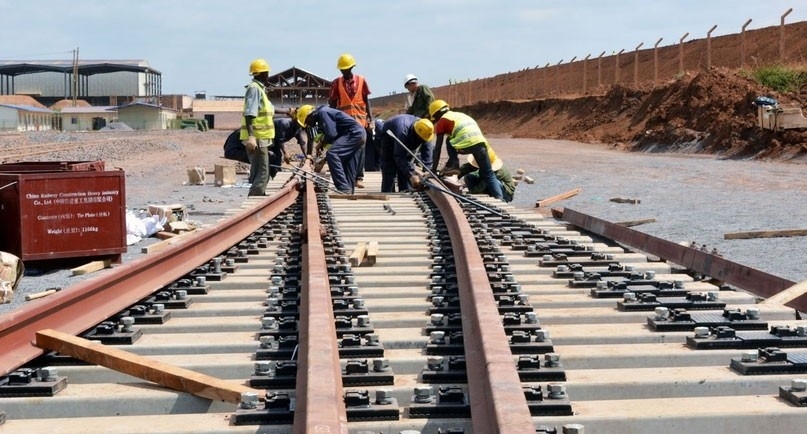GE led consortium inks pact with Federal Government of Nigeria for Rail Concessi
The international consortium led by General Electric (GE) signed an agreement in Washington D.C last Friday to proceed with the interim phase of the Nigerian narrow-gauge railway concession. Initiated by GE, the consortium comprises of SinoHydro, Transnet and APM Terminals

April 30, 2018: The international consortium led by General Electric (GE) signed an agreement in Washington D.C last Friday to proceed with the interim phase of the Nigerian narrow-gauge railway concession.
Initiated by GE, the consortium comprises of SinoHydro, Transnet and APM Terminals. In the interim phase of the rail concession, remedial works will be carried out on part of the narrow-gauge rail line system to make it technically and economically operable. A joint operation will be established between the consortium and the Nigeria Railway Corporation (NRC) with an initial supply of 10 locomotives and 200 wagons to expand the existing rolling stock in Nigeria.
The program is expected to increase the number of available locomotives, increasing the frequency of passenger and freight rail services. In addition, freight haulage capacity by the end of the first 12 months of the interim phase is expected to increase roughly ten-fold, from its current less than 50,000 metric tonnes per annum to about 500,000 metric tonnes per annum.
Lazarus Angbazo, CEO, GE Nigeria stated that GE is committed to the sustainable development of Nigeria and is delighted to have reached this crucial stage of the project to revamp and revitalize the country’s legacy rail infrastructure system. The consortium looks forward to commencing execution of this interim phase with the continued support of the federal government and the ministry of transportation.
Once interim phase is commenced, the consortium will conclude negotiations with the federal government on the terms of the substantive phase of the concession agreement that will expand service up to 200 locomotives and associated rolling stock. This will rehabilitate Nigeria’s narrow-gauge rail infrastructure and the return of rail transport as a key element in enabling the country’s socio-economic development.


